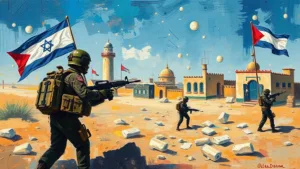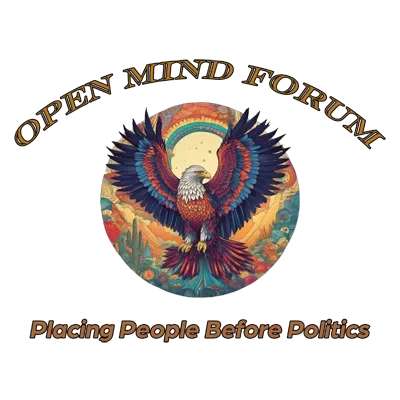The Hypocrisy in the Gentile Critique of Israeli Self-Defense
Introduction
Israel’s Gaza War is righteous because it protects the nation’s survival against existential threats. The October 7, 2023, massacre of 1,200 unarmed Israeli civilians at a music festival reveals Hamas’s violent intentions, yet critics of Israel often ignore or minimize such atrocities. Instead, they focus exclusively on condemning Israel’s defensive measures, labeling them “genocide” or “war crimes.” These accusations highlight a blatant hypocrisy when compared to the treatment of other nations engaged in warfare. It is funny how similar acts of all out warfare do not receive the vitriol aimed at Israel.
This piece was inspired by the announcement Pope Francis made requesting that international bodies investigate whether Israel is committing Genocide in Gaza, a request I find despicable given the antisemitism of the Catholic Church for over 2 millennia. It also seems to be a repudiation of the Vatican II quasi-apology to Jews across the globe. Forgive but don’t forget my brothers and sisters.
Double Standards in the Critique of Israels Gaza War

Israel’s Gaza War is creating a whole new world of antisemitic memes suggesting moral indignation. The global community’s response to Israel often involves moral outrage disproportionate to their response to similar or worse actions by other nations.
For instance, the Russian invasion of Ukraine has resulted in tens of thousands of civilian deaths, the deliberate targeting of hospitals, schools, and infrastructure, and the displacement of millions. Reports from international bodies, including the United Nations, confirm these atrocities. Yet, critics seldom accuse Russia of “genocide” in the way they hastily label Israeli actions in Gaza. Even China’s treatment of the Uyghur Muslim population—marked by internment camps, forced sterilizations, and cultural erasure—rarely provokes the same level of international outcry as Israel’s actions to defend itself.
Dual Standards: US bombing of Mosul in 2017
A clear example lies in media coverage and activist rhetoric. When the U.S.-led coalition bombed Mosul in 2017 to defeat ISIS, reports confirmed the high civilian death toll due to urban warfare. However, the global community largely accepted these casualties as a tragic but necessary part of combating terrorism. In contrast, when Israel targets Hamas operatives hiding in hospitals or schools, critics accuse the IDF of indiscriminate attacks, ignoring Hamas’s documented use of civilians as shields.
In 2014, during the Gaza conflict, Hamas launched over 4,500 rockets at Israeli cities, deliberately targeting civilian areas. Despite this, much of the international response centered on Israel’s countermeasures, including airstrikes against Hamas’s military infrastructure. Critics often ignored Israel’s extraordinary efforts to minimize civilian casualties, such as phone calls, text messages, and leaflet drops warning of impending strikes. No such scrutiny was applied to Hamas’s deliberate targeting of civilians.
The Pope’s Call for Investigations of Israel’s Gaza War
Recently, Pope Francis urged international bodies to investigate what he labeled as Israeli genocide in Gaza. While calls for accountability resonate with universal moral principles, his demand smacks of selective outrage. Where was this fervor when Hamas slaughtered unarmed civilians or used hospitals and schools as shields to protect their arsenals? The Pope’s call perpetuates a false narrative of Israel as an aggressor, ignoring its right to self-defense against a terrorist organization whose charter calls for Israel’s annihilation. Israel’s Gaza War is not any business of the Pope or anyone else other than Jews and Palestinians.
Israel’s Response was and is appropriate to the 75 years of Harassment
The war began because Hamas decided to murder 1,200 unarmed people at a concert as an act of terror. They lobbed rockets into Israel at the same time. This act of aggression demanded a response from Israel. It was, it seems, the proverbial straw that broke the camel’s back. Israel had enough of this petty bickering and constant terror attacks and responded with a terror of their own. Does the Pope know just how many warnings to civilians made by the IDF? Does he care? Is he merely pointing fingers at an ancient enemy ready to settle once and for all a 75 year ongoing harassment by Palestinian terrorists.
Does Pope Francis Embrace the Hamas Murderers? Or is he just another rank and file Antisemite?
Does the Pope understand this or is he part of the problem? If the Pope wants to investigate atrocities how about investigating the recent history of the Catholic Popes as Pius XII teamed up with Hitler making no effort to critique the German mass murders of 6,000,000, Jews effectively making Europe free of Jews. Or perhaps the Inquisition when an untold number of Jews were burnt at the stake while alive because they refused to convert.
Maybe even as the Spanish forcibly converted Jews, they refused to treat the Conversos as true Catholics, expelling them along with other Jews in 1391 after a massacre of unconverted Spanish Jews and again in 1492. Pope Francis has a great deal of antisemitic history still on his plate. Perhaps he should just shut is mouth except to offer sincere apologies for the way Catholics have treated their fellow Jews over the past 2 millennia before he condemns Israel for defending itself against a terrorist army.
The Catholic Church’s Troubled History with the Jewish People
This critique becomes more troubling when placed against the backdrop of the Catholic Church’s historical relationship with Jews. During the Holocaust, Pope Pius XII, often referred to as “Hitler’s Pope,” maintained a disturbing silence as the Nazis orchestrated the genocide of six million Jews. Vatican documents reveal a reluctance to intervene, even as Jewish communities begged for the Church’s assistance. Instead, the Church prioritized diplomatic neutrality over moral courage.
Centuries earlier, the Catholic Church spearheaded the Spanish Inquisition, which systematically persecuted Jews. Thousands were tortured or burned at the stake for refusing to convert to Catholicism. This period solidified a legacy of distrust between the Jewish community and the Church. While Jewish teachings emphasize forgiveness, forgetting such atrocities remains impossible for many Jewish people.
Double Standards in the Pope’s Stance
The Pope’s selective condemnation becomes even more glaring when compared to his muted stance on other modern atrocities. Where were similar calls for international investigations during the Russian invasion of Ukraine, which involved deliberate attacks on civilian targets? Why hasn’t the Vatican demanded inquiries into China’s treatment of Uyghur Muslims or Iran’s brutal suppression of dissent? This inconsistency undermines the credibility of his moral outrage toward Israel. Perhaps undermines his credibility is too harsh for it is possible that Pope Francis has no credibility at all concerning the life struggles of Jews around the globe. His duplicity is a meaningful clue to his true beliefs.
Historical Ironies and Current Implications
The Catholic Church’s historical complicity in Jewish suffering makes its modern condemnation of Israel particularly painful for the Jewish community. Many Jews see the Pope’s statement as another chapter in a long history of Catholic hypocrisy—one where the Church fails to acknowledge its role in past atrocities while holding Israel to an unattainable moral standard.
Of limited note, during the Vatican II Council of 1962, Pope John XXIII (23) sought to soften the ancient practice of antisemitism by the Church toward the Jewish People. The vote absolving Jews of the killing of Christ was not unanimous as 88 Bishops voted against the proposal. That being said, Jews, quite frankly didn’t jump for joy at the news. Many of us joked about the chutzpah that the Pope could actually forgive us for the crime that for centuries was the basis of their persecution of the Jews of Europe, often finding ways to kill us without regard to the truth of their campaign. We never needed the Vatican to clear our names, we knew that guilt was not ours to begin with.
Jews Remember, Even as They Forgive
For Jews worldwide, the historical wounds inflicted by the Catholic Church remain deep. The Holocaust and the Inquisition are not distant memories but defining tragedies. Jewish resilience stems from the ability to forgive without forgetting, a delicate balance the Church has yet to fully appreciate. Now, more than 60 years after Vatican II the old wounds are opened once again by The Pope’s demand for an investigation into Israel. It feels like another betrayal—a failure to understand the Jewish people’s need for security in an overtly hostile world.
Broader Context: Selective Outrage in the Arab-Israeli Conflict
Critics frequently claim to defend Palestinian human rights but remain silent on violations within Palestinian territories by their own leadership. For example, Hamas diverts humanitarian aid for military purposes, turning building materials into rockets and tunnel networks rather than homes or schools. The Palestinian Authority has faced similar accusations of corruption and human rights abuses, including the suppression of free speech and violent crackdowns on dissent. These realities rarely feature in the rhetoric of Israel’s detractors, further demonstrating selective antisemitic outrage.
The inconsistency extends to neighboring Arab states. Egypt enforces its blockade of Gaza to prevent Hamas from smuggling weapons, yet critics rarely condemn Egypt for this policy. Similarly, the ongoing humanitarian crises in Syria and Yemen, where hundreds of thousands have died due to government violence and foreign intervention, fail to provoke the same level of activism as the Israeli-Palestinian conflict.
According to Wikipedia…
“Hamas and Israel have engaged in protracted armed conflict. Key aspects of the conflict include the Israeli occupation of the West Bank and Gaza Strip, the status of Jerusalem, Israeli settlements, borders, water rights, the permit regime, Palestinian freedom of movement and the Palestinian right of return. Hamas has attacked Israeli civilians, including using suicide bombings, as well as launching rockets at Israeli cities. A number of countries, including Australia, Canada, Israel, Japan, New Zealand, the United Kingdom, and the United States have designated Hamas as a terrorist organization. In 2018, a motion at the United Nations to condemn Hamas was rejected.”
Future Relations Between Israel and the Arab World: Glimmers of Hope
Israel’s normalization of ties with Arab states through the Abraham Accords illustrates the potential for progress. However, these relationships remain fragile. Critics of Israel often seek to undermine such efforts, framing the accords as betrayal by Arab nations rather than a step toward peace. For example, following the 2020 agreements, Iran and its proxies intensified their propaganda campaigns, attempting to widen the rift between Arab governments and their populations.
If Israel continues balancing military necessity with diplomatic outreach, it can strengthen these partnerships. Shared concerns over Iran’s nuclear ambitions, coupled with the potential for economic collaboration, offer opportunities for stability. However, achieving this will require addressing deeply ingrained biases that perpetuate a double standard in the global treatment of Israel.
—
Sources Cited
Kuperwasser, Y. (2023). The moral dilemmas of asymmetrical warfare. Jerusalem Center for Public Affairs.
United Nations Human Rights Council. (2023). Report on civilian impact in asymmetric conflicts.
Kertzer, D. I. (2020). The Pope and Mussolini: The secret history of Pius XI and the rise of Fascism in Europe. Historical insights into Church complicity.
Wistrich, R. S. (1996). Antisemitism: The longest hatred. Detailed account of Church-led persecutions.
Dershowitz, A. (2019). The case for Israel. Defense of Israel’s actions in warfare.
Suggestions for Further Reading
Dawidowicz, L. S. (1975). The war against the Jews: 1933–1945. Examination of the Holocaust’s roots.
Phayer, M. (2000). The Catholic Church and the Holocaust, 1930–1965. Vatican silence during genocide.
Netanyahu, B. (1993). A durable peace: Israel and its place among the nations. Strategic insights into Israel’s security.
Shavit, A. (2015). My promised land: The triumph and tragedy of Israel. Reflections on Israel’s historical struggles.
Bickerton, I. J., & Klausner, C. L. (2018). A history of the Arab-Israeli conflict. Comprehensive analysis of the conflict’s roots.
Goldhagen, D. J. (2002). A moral reckoning: The role of the Catholic Church in the Holocaust and its unfulfilled duty of repair. Critique of Church responsibility.
Lewis, B. (2002). What went wrong? The clash between Islam and modernity in the Middle East. Insights into broader regional conflicts.
Morris, B. (2021). 1948: A history of the first Arab-Israeli war. Origins of Israel’s modern-day conflicts.
Dershowitz, A. (2019). Terror tunnels: The case for Israel’s just war against Hamas. Examination of Israel’s moral dilemmas.
—
Disclaimer: The images and videos in this post are AI-generated creations, intended purely for illustrative and conceptual purposes. They are not real-life representations and should not be interpreted as such. Their sole purpose is to offer a visual means of exploring the topics discussed in this post.




